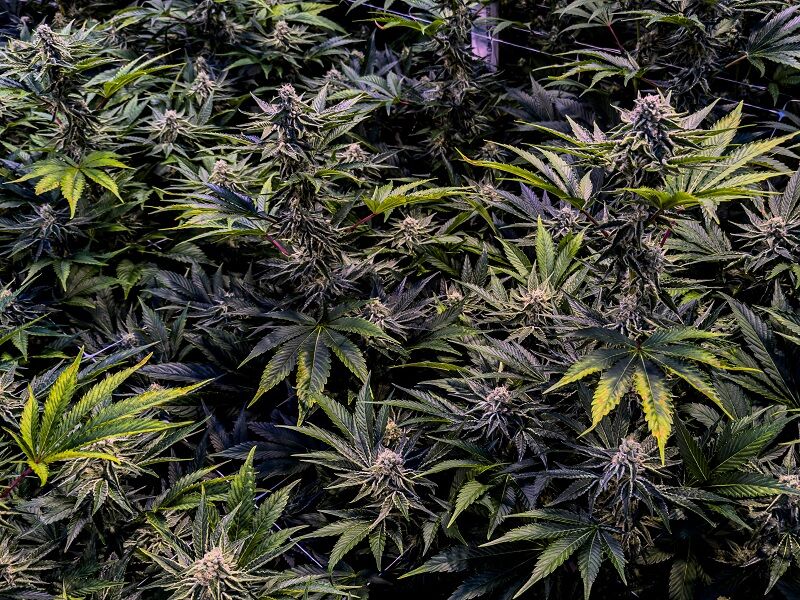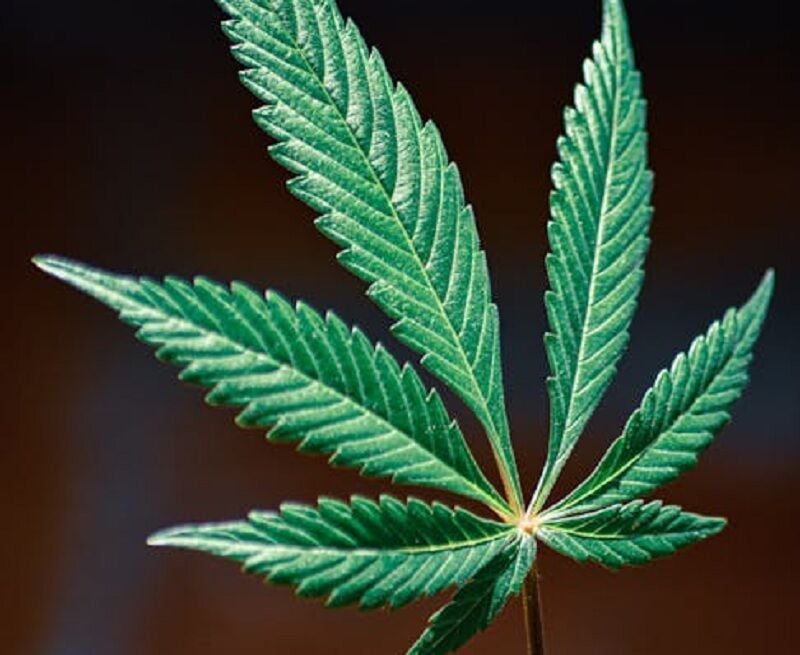How cannabis fits in Thai Communities

Get ready to dive into the heart-pounding excitement of local communities across the UK, where the rise of cannabis is setting the stage for some truly thrilling discussions about their impact and how they’re weaving into the fabric of society. This journey through the evolving landscape reveals an inspiring story: these groups aren’t just changing minds; they’re actively rolling up their sleeves and helping their neighbourhoods flourish! Imagine this: cannabis distributors becoming local heroes by sponsoring events and backing charities, building incredible bridges, and creating a warm sense of home for everyone.
But hold on, because there’s even more amazing news! The economic boom brought on by legal cannabis distribution is like a superhero swooping in to save the day. We’re talking about job creation that feels like a high-five to the community and tax revenue that’s pouring in, giving public services and infrastructure a major power-up. This cash flow is breathing new life into local economies, making every day brighter for residents.
The historical context of cannabis in Thai Communities
Cannabis has always been a bit of a neighbourhood favourite in Thai communities, popping up in more than just fun times. Back in the day, this friendly plant made its way into religious gatherings, and traditional healing practices, and was even a part of daily life for many. Spiritual guides often leaned on cannabis to help chat with the divine, thinking its smoke could lift their words right up to the gods. In the countryside, it was pretty popular as a go-to for homemade remedies, showing just how much it was woven into the very heart of Thai culture.
Legal landscape of cannabis in Thailand
The trajectory towards the decriminalisation of cannabis in Thailand reflects a profound transformation in societal perspectives. Traditionally, Thailand’s rigorous anti-drug policies classified cannabis alongside other controlled substances, imposing stringent penalties. Nonetheless, recent developments indicate a critical shift. Initiatives to decriminalise cannabis have commenced, driven by an increasing acknowledgment of its medical and economic advantages. This shift is intricately linked with the Thai culture’s proficiency in integrating traditional beliefs with modern progress.
The campaign for the legalisation of cannabis has experienced a notable surge, with entities from diverse sectors advocating for policy reform. These endeavours reached their zenith with the decriminalisation of cannabis, establishing a landmark event in Thailand’s drug policy narrative. It represents a progression towards recognising the plant’s value while striving to eliminate the stigma associated with decades of prohibition
Medical cannabis in Thai Society
In Thai communities, the utilisation of cannabis for health and wellness signifies a resurgence of traditional practices, enhanced by contemporary regulatory measures that guarantee safety and accessibility. Recognised historically for its medicinal attributes, cannabis now occupies a central role in alternative healthcare throughout Thailand.
Medical professionals and patients have adopted extracts containing Cannabidiol (CBD), leveraging its therapeutic advantages while avoiding the psychoactive effects linked to Tetrahydrocannabinol (THC). The precise regulation that limits THC content to less than 0.2% ensures that these products meet health requirements while preventing misuse. As a result, the emergence of clinics and wellness centres specialising in cannabis-based therapies marks a notable transition, positioning Thailand as a leader in medical cannabis research and application within Southeast Asia.
The role of cannabis communities in local economies

Job creation and workforce development
Cannabis communities have become instrumental in facilitating local employment growth, notably with the advent of establishments such as dispensaries. The dispensary is not merely a retail outlet; it serves as a centre for diverse professional opportunities within the cannabis industry. Ranging from cultivation and harvesting to sales and customer service, Dispensaries provide an array of employment opportunities, significantly contributing to local job creation. Moreover, these positions frequently necessitate specialised skill sets, fostering workforce development as employees undergo training in areas such as cannabis product knowledge, regulatory compliance, and customer engagement. Establishments of this nature are demonstrative of how the cannabis sector is cultivating a skilled and knowledgeable workforce, thereby enhancing the local economy and community at large.
Tax revenue and public funding
The legalisation of cannabis has introduced an additional revenue stream for municipal governments via taxation. Revenue generated from the sales tax imposed on cannabis dispensaries is allocated directly to public treasuries, supporting fundamental services such as education, healthcare, and infrastructure development. In regions where cannabis markets are flourishing, the tax income derived from cannabis sales substantially contributes to public funding initiatives, thus mitigating financial pressures on various sectors. This surge in financial resources is imperative for the enhancement of community services and the resolution of urgent local challenges, consequently elevating the standard of living for inhabitants.
Support for ancillary businesses
Cannabis communities contribute significantly to the growth of ancillary businesses that offer services and products to dispensaries and consumers. This includes security services, legal and consulting services, gardening supplies, and packaging companies. As the cannabis business industry thrives, it engenders a ripple effect, fostering demand for these ancillary enterprises and thus aiding in the comprehensive development of local economies. Such a symbiotic relationship not only enriches the economic landscape but also encourages innovation and entrepreneurship within local communities.
Social dimensions of cannabis communities

Breaking stereotypes
Cannabis communities play a critical role in addressing and rectifying misconceptions associated with cannabis consumption. Your engagement is instrumental in confronting and altering antiquated perspectives, fostering a more enlightened and favourable perception of cannabis’s function within society. Through active participation in educational initiatives and public discourse, you cultivate an environment where knowledge supersedes misinformation. This effort not only contributes to the elimination of stigma but also facilitates the development of more forward-thinking policies and attitudes towards cannabis use, both for medicinal and recreational purposes.
Enhancing community engagement
Your participation in local communities transcends simple involvement; it cultivates a sense of cooperation and reciprocal assistance. By supporting local events and charitable organisations, cannabis communities such as yours play a crucial role in strengthening the social framework, thereby fostering more unified and supportive local ecosystems. This joint endeavour improves living conditions for all inhabitants, guaranteeing that the advantages of cannabis legalisation reach beyond mere financial gains, impacting individuals on a deeper, community-oriented scale.
Education and public health awareness
Education serves as the foundational pillar in ensuring responsible consumption of cannabis and safeguarding public health. By distributing accurate, evidence-based information regarding the effects, applications, and legal aspects of cannabis, you occupy a pivotal role in advancing public health initiatives. Educational programs, such as workshops, seminars, and materials produced within the cannabis community, are instrumental in enhancing awareness, dispelling misconceptions, and furnishing essential insights into secure consumption practices. This forward-thinking strategy plays a significant part in cultivating a healthier and more well-informed populace, thereby mitigating the potential hazards linked to misinformation and misapprehension.
In undertaking these endeavours, you—as members of the cannabis community—are making substantial contributions toward the social and economic prosperity of local societies. Your efforts have a wide-reaching impact; they influence perceptions positively, nurture communal cohesion, and champion health and safety amidst an ever-changing environment.
The way forward for cannabis communities

Legal changes and community initiation
Cannabis communities are required to adeptly adapt to changing legal frameworks. In regions such as Thailand, where legislative alterations are noteworthy, your involvement in community endeavours can facilitate transformation. It is imperative to engage in discussions with local governing bodies to guarantee adherence and enhance comprehension. Stone Age Dispensary exemplifies an exemplary model, showcasing the beneficial impacts these communities can offer, ranging from economic enhancement to the development of a proficient workforce.
Strategic planning for sustainable integration
To ensure the sustainable integration of cannabis communities, it is essential to devise strategic plans that align with the goals of local communities. This necessitates a comprehensive evaluation of the environmental impact resulting from operations, along with the implementation of environmentally sustainable practices. Collaboration is crucial in this regard. Through joint efforts, cannabis businesses like Stone Age Dispensary can efficiently tackle issues pertaining to public safety, support educational and health awareness programs, and actively participate in the local economy. This strategy guarantees mutual benefits for both cannabis communities and local populations.
Cannabis communities have significantly transformed the landscape of local areas within the UK, introducing a series of beneficial changes. Through their dedication to community development, responsible consumption, and environmental sustainability, they have demonstrated that their presence can serve as a substantial force for positive impact. The initiatives to educate, engage, and collaborate with local communities not only dismantle outdated stereotypes but also facilitate a more inclusive perception of cannabis. As these communities proceed to navigate the complexities associated with regulation and integration, their proactive stance is likely to cultivate environments where safety, health, and mutual respect are prioritised.
Considering the above-shared details, You can also check out, How to set up an organic cannabis farm in Thailand, Tackling Thailand’s cannabis industry regulations and best practices might seem like climbing Everest, but guess what? It’s totally achievable, Armed with insider know-how and the right connections, you’ll discover that Thailand is not just fertile soil for growing cannabis—it’s ripe for blossoming your business dreams too.
Latest Thailand News
Follow The Thaiger on Google News:


























